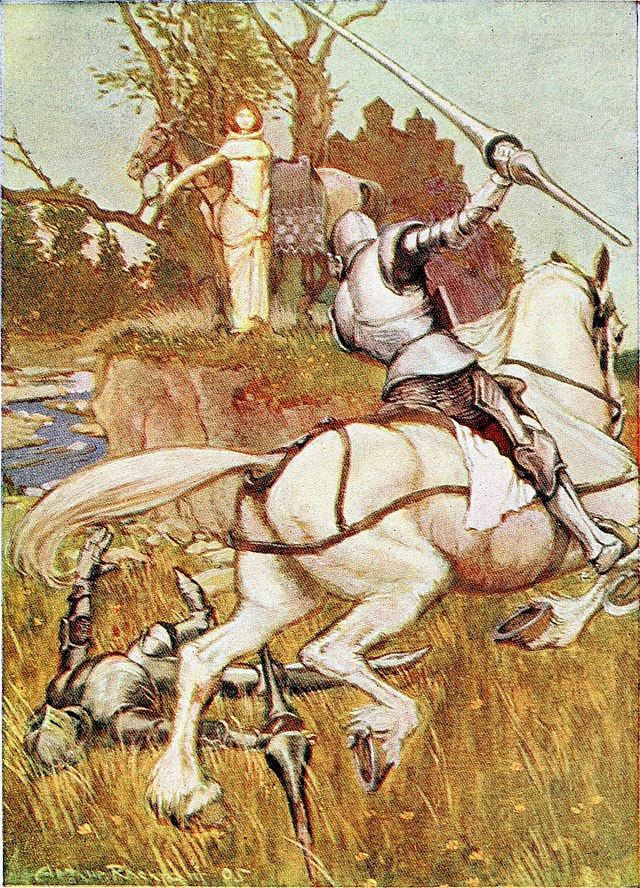Let’s talk about Feudalism.
“Feudalism never actually existed.”
– You, probably
Fair point. Making generalisations (as I’m about to) wins you a hot D- in most history classes. Intellectual discussions of Feudalism are about as productive as arguing if ‘true’ capitalism/communism has ever been attempted.
But we’re not talking about history today; we’re talking about Medieval Fantasy Pastiche.

My biggest complaint about Medieval Fantasy Pastiche is that it should steal more from the ‘actual’ medieval era. Too often, we project modernist assumptions about religions, government, and law onto fundamentally alien societies. The past is a foreign country; let’s start treating it like one!
To that end, here are a few pieces of world-building, compliments of the real world, that you can use to make your homebrew TTRPG world a little more authentic and a lot more weird.
My Aesthetic is Peripatetic
Where’s the King?
In most fantasy settings, he lives in his big castle. He’s busy making laws, plotting wars, and feasting.
This is some bullshit.
Real European Kings kept busy schedules and travelled frequently. Manor houses all over England share a common architectural feature: the King’s Bedroom. This extra-baller bedroom was reserved for the use of wandering monarchs. Often, they were massive investments; attracting a monarch to your home could be the difference between prosperity and ostracism, so people laid out cash for it.
Why were these kings travelling so much? Partly, to pray in public. Their legitimacy came from two sources: violence and the church. Claiming divine right required constant maintenance. The peasantry wanted reassurance a devout and righteous sort led them, while the church benefitted from performative elite compliance. Lack of a civil service meant that the government was personal, and that person had to be mobile.
In China, the emperor was considered the bridge between the worlds of the divine, the natural, and the human; famines, droughts, and storms could all be considered signs of ritual incompetence. Over in Rome, Caesar’s election as Pontifex Maximus of Jupiter set the stage for his ascension to dictator. Egyptian Pharaohs were considered gods incarnate; the priesthood occasionally demanded they run laps around sacred pillars to demonstrate that the divine was in good health.
The public performance of religion is the backbone of legitimacy in most (ancient) societies. Unless your king rules a walkable kingdom, constant travel will be needed to show off his religious cred to every corner of his kingdom. Palaces are great for wintering in, and a fortress is a military necessity, but successful kings travelled often, to shore up their relationships with vassals, priests, and the peasantry.
Gamewise, this gives you a chance to get powerful characters out of their elements, available to the PCs, and vulnerable to shenanigans! Is the King’s Bedroom haunted? Is the King’s retinue picnicking in this forest? Does the royal family deserve a spot on your random encounter table?
I Don’t Know You
Everyone knows everyone.
Most peasants live in small villages. People rarely move between hamlets. Strangers stand out, and their arrival is likely to be an occasion for the group to pull together, either in celebration or fear. In the event of Murderhobo PCs, there’s no police or town guard – just a desperate shouting for cousins and neighbours to come and throw stones to drive away the outsiders.
Townsfolk and artisans were organised into brotherhoods and guilds. These were combinations of trade unions, insurance collectives, theatre troupes, blockwatches, and (occasionally heretical/pagan) ritualistic cults. A good-sized trade town might hold a few dozen formalized gangs, and their assembled leadership would pool money to buy rights and peace from the local nobles. Everyone the PCs meet (except outcasts) should have a community backing them up; your PCs might have swords and magic, but locals will always outnumber them two dozen to one.
In the absence of forensic investigation, justice may be based on Fama – your local reputation and standing in the community. Are you a strange mercenary or a travelling gang of oddballs? You have no fama. Your testimony is worthless in court. Your only defence may be strange local customs. You’re a perfect scapegoat, making your very appearance an opportunity for crime.
Aristocracy: Rule by the ‘Best’
One benefit of democracy is that it produces leaders who look the part. We tend to vote for older, taller men; a neotenized political culture results in candidates designed to resemble father/grandfather archetypes. Presidents have to look like presidents. Otherwise, we don’t elect them.
Being unelected, Monarchs don’t have this problem.
To that end, history is filled with child kings, senile lords, and mad queens. Inbred, chinless lunatics ruled for centuries. Merit was irrelevant; a bad monarch was (often) preferable to civil war. Removing incompetent leaders could throw the legitimacy of the entire system into question. Aristocrats swore fealty to bloodlines, not individuals.
The wise monarch? Ignored and disrespected by the barons because of her gender. The realm’s chief general? Eighty-four, gouty, and blind. That sadistic duke? He’s twelve years old.
Abandon our world’s thin pretence of meritocracy. Embrace the insanity of choosing leaders based on a birth lottery. The real world responded with near-constant civil war, assassination, patricide, fratricide, and infanticide. Drama! Intrigue! Plot Hooks!
Just Between Us Nobs
Nobles are all related to each other, either by blood, history, or both. If two aristocrats aren’t cousins or blood enemies, their grandfathers probably fought together at some famous battle. Giving Noble PCs an intimate connection to every knight, squire, monarch, and baron gives your players actionable motivations and information.
Nobles killing each other is rare; leaving aside the awkward family reunions, hostage-taking and ransom is far too lucrative to pass up. Since noble wealth is rooted in hereditary landownership, killing your enemy merely changes the opposing leadership. Ransoming him back to his family gives you a chance to gain land, a commodity otherwise too precious to be sold.
Narratively, you (the DM) have a great chance for recurring villainy; perhaps killing the Comte-de-Mal would upset your family and allow Baron Grenouille to inherit the Salt Bogs. Disinherited nobles who swear vengeance make great dupes for warlock pacts or servants for other big bads.
Make it Weird!
Plunder the past, but don’t let yourself be bound to it. Mix strange cultural practices. Steal from everything. Read old, wrong books about old, wrong times.
Medieval Fantasy Pastiche is useful. Like all tropes, it can establish a common imaginative starting point for your group. But it is just a starting point. Borrow the strangest bits of the past to develop a setting that is both believable and strange. The world-building has already been done!
